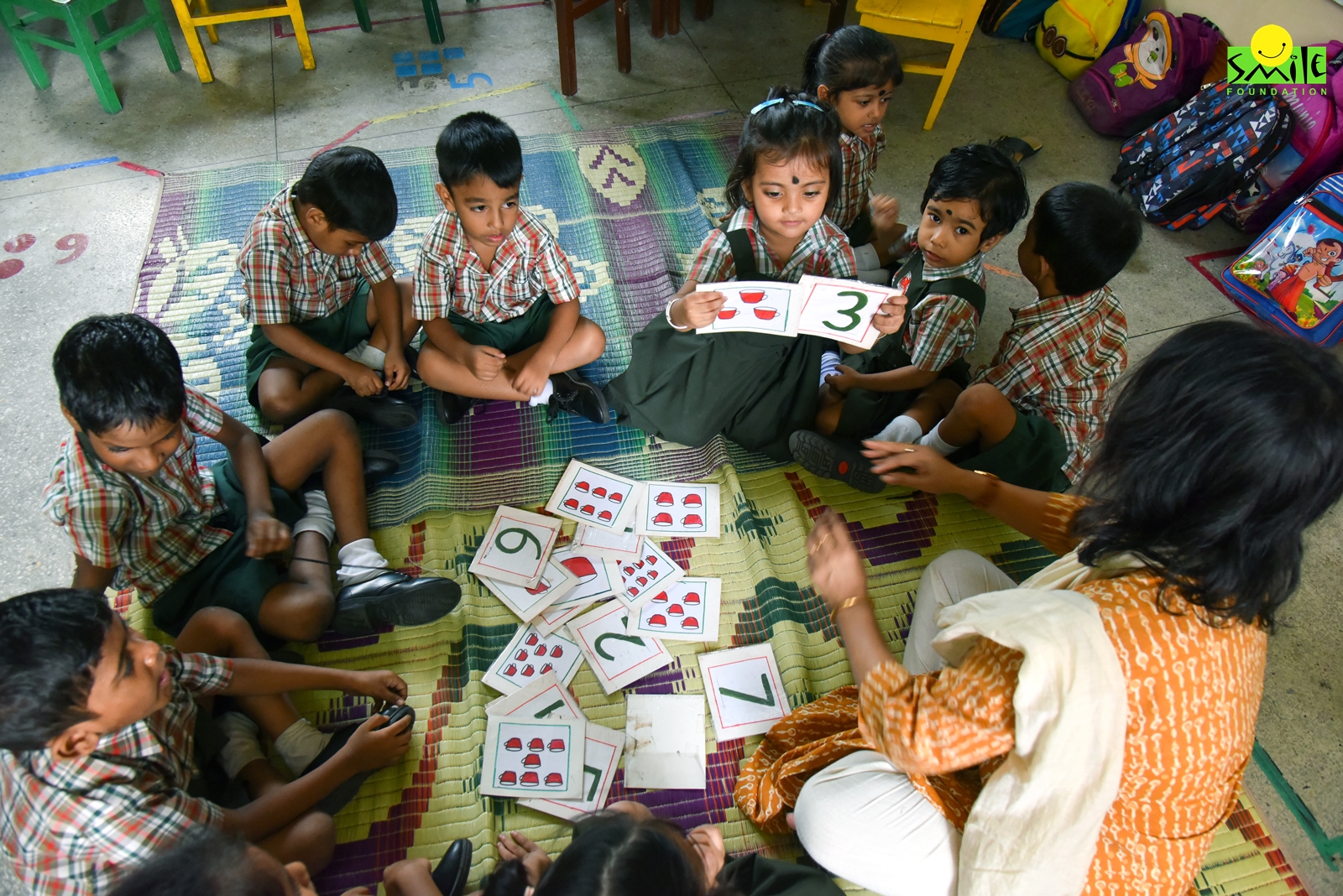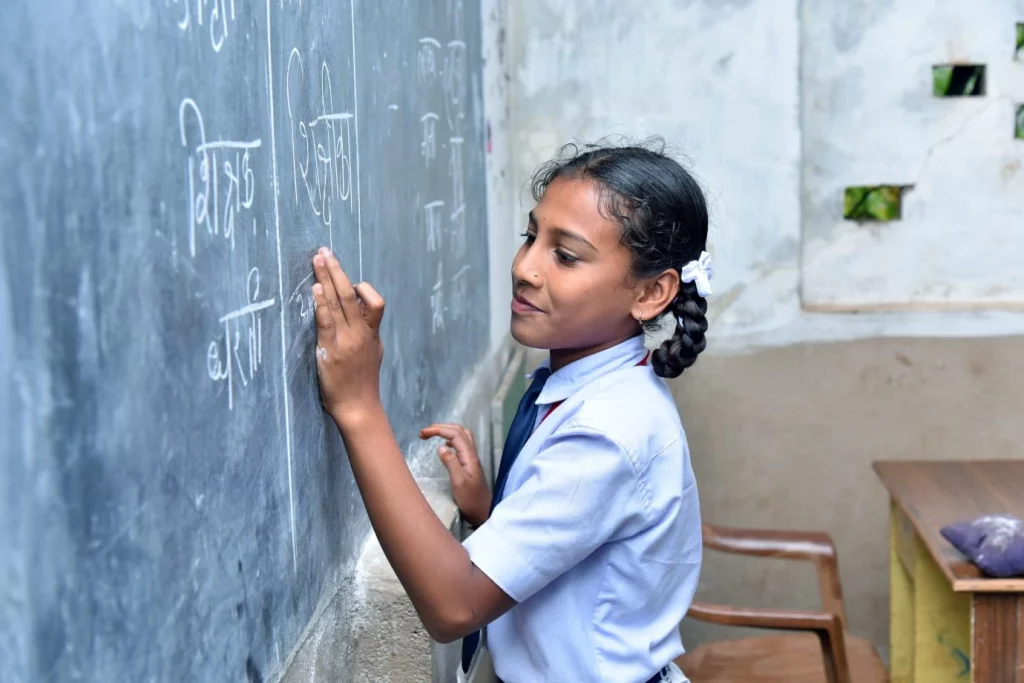Research shows games can highly improve the ability of children to plan, organize, get along with others, and regulate their emotions. In addition, games help with the learning of language, math, and social skills, along with also helping children cope with stress.
Game-based learning (Khel Khel Mein Siksha) is a method that permits learners to explore different components of games as learning. Nowadays, many games designed for academics by different educationists are available in subjects like science, mathematics, history, etc.
Benefits of Game-based Learning
Increased Motivation
Playing games in the classroom increases overall motivation among students. By enjoying games, students get driven to be active, concentrate, and participate in set tasks. Games facilitate students to learn as a team along with taking responsibility for their own learnings. The games serve as an excellent classroom management tool for motivating the children.
Student Attentiveness
We all want our students to be attentive, and sometimes allowing them to play may not seem like the most obvious way to achieve this. But what if it’s not as counterintuitive as it seems?
Games often require students to stay alert and focused for extended periods. In fact, a 2012 study conducted by researchers at the University of Wisconsin in Madison discovered that playing games can actually benefit students. It helps improve their ability to pay attention and trains their brains on how to learn effectively.
When different teaching methods, like incorporating games, are used in the classroom, students get to engage with the subject matter in various ways. This, in turn, makes it easier for them to stay focused on the material even after the activity is over.
Strategy skills
Most of the games need problem-solving methods and design. By applying a variety of problem-solving methods in an active game, children become ready to use their sharpness in resolving issues and increasing their psychological learning.
Peer Learning
When each member of a group actively participates in games, they enhance various skills such as planning, decision-making, and resource management. Moreover, they have the chance to learn from one another. Games serve as an excellent platform for children to grasp the concept of teamwork. Each child can interact with peers who possess similar skills, allowing them to improve in different ways.
Games play a crucial role in nurturing vital life skills among students and offer them opportunities to practice these skills. These abilities are not only beneficial in school but also in the real world. It’s one of the reasons why parents choose preschools, as they provide children with positive peer influence, motivating them to enhance and excel in their abilities.
Reduce Stress
Introducing game-based techniques in classrooms can significantly improve student learning. These approaches make the subject matter more captivating and encourage active learning. They aim to create lessons that engage students, which is especially advantageous in subjects like mathematics and science. Games make learning less daunting, reducing stress and making it easier to grasp complex topics.
Conventional, theory-heavy teaching methods can be draining and stressful for many students, leading to a negative perception of the learning environment. Instead of monotonous worksheets, games offer a more enjoyable alternative for students. They not only ease the learning process but also allow students to showcase their knowledge, skills, and comprehension of a subject.
Mighty Memory
Engaging in different content-specific games can boost memory retention. When children play these games, they must recall important information on specific subjects, and this recall helps them think and act quickly. Additionally, when students play a game, they exercise their memory by formulating questions and answers that fit the context of the game, relying on their recollection of the subject matter to enjoy the game.
Learning from Mistakes
While classroom games serve as a means to understand concepts, they are equally valuable for the lessons learned from mistakes. This not only fosters problem-solving skills but also provides students with social-emotional benefits. Researchers emphasize that students learn the importance of gracefully accepting defeat by leaving the game, even when they haven’t won.
Why is game-based learning important?
Game-based learning plays a crucial role in education by bringing children together, fostering communication, encouraging interaction, and promoting teamwork. Games designed with a strategic approach stimulate a child’s cognitive abilities. They create a dynamic environment that not only motivates learners to acquire new skills but also forms an emotional connection with learning. In this context, teaching methods and the approach used in education are more significant than the materials themselves. Some contemporary teaching aids have become essential and are highly favored by younger students.
The integration of enjoyable games and technology has revolutionized preschool learning. Game-based learning (GBL) benefits both educators and parents. Many schools are now actively embracing these methods for the benefit of children, and it’s important for all of us to recognize their importance and get involved.
The environment in which children learn greatly influences their educational outcomes. It is disheartening to see students succumb to pressure, a burden that has accumulated over the years. If children view education as a means of empowerment, they won’t be intimidated. The current education system sometimes overwhelms our younger generation. Therefore, it’s essential to eliminate the fear associated with learning, particularly among children aged 3 to 8. The Khel Khel Mein Shiksha teaching method has proven to be an effective tool in reducing this fear.
Early Childhood Care and Education (ECCE) focuses on a child’s overall development, including social, emotional, cognitive, and physical needs, to establish a solid foundation for lifelong learning and well-being. The Khel Khel Mein Shiksha approach enhances the teaching and learning process, offering ample opportunities for children to explore, investigate, and experiment, ultimately preparing them for future learning, good health, and success in life.
Smile Foundation and game-based learning
The Shiksha Na Ruke campaign has placed significant emphasis on integrating sports into the educational curriculum of every Mission Education (ME) Centre established by Smile Foundation. This approach has proven to be highly effective in enhancing the foundational stage of education for children.
During the challenging times of the COVID-19 pandemic, it was a positive and productive initiative to re-engage children who had become disinterested in education, leading to a significant decline in their academic progress. Looking ahead, the use of games as an educational tool will continue to play a crucial role in advancing and ensuring access to quality education for underserved children in both rural and urban areas of India.










